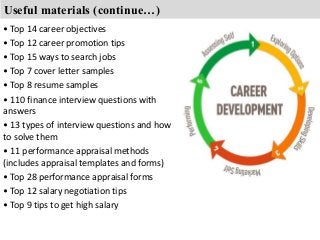
Agricultural consultants provide advice to farmers and ranchers on a variety of agricultural issues. Their advice includes the production of many crops and livestock, water resource management, and protection of environment. They also provide advice on business issues, such as waste management and estate planning. Many agricultural consultants have specialties in particular areas of farming, like agritourism. If you're interested in pursuing a career in agricultural consulting, check out these tips and resources.
Job description
An agricultural consultant's job description is diverse and can include advising farmers on everything from machinery and farming methods to safety and pest control. Agricultural consultants can also assist farmers in business analysis, as well as participate in seminars, meetings and other group sessions. They might also manage farms for absentee owners. Read on to find out the full job description. In addition to providing expert advice to farmers, agricultural consultants may also conduct research to improve agricultural processes.
For success in this field, the agricultural consultant must be able to communicate effectively. These consultants are responsible for research, management, and updating information. They may also travel a lot during work hours. They work Monday through Friday. But, it is possible that they might need to work nights or weekends during busy periods. They may also own farms. They can achieve different levels of success depending on their work experience and the company they work for.

Education is required
Agricultural consultants can work in many sectors, including the agricultural industry, agriculture and food and farming. To be eligible for this job, one must have a degree either in soil/earth science or another related field. Those with previous experience in agriculture are also highly desirable, as is relevant postgraduate qualification. It may be necessary to continue your studies in niche fields for international employment. Agriculturists also have the option to open their own company.
While the education requirements of an agricultural consultant vary, it is usually required to have at least a bachelor’s degree from an accredited university. A graduate degree in the related field of agribusiness, natural resources management or environmental science is strongly recommended. However, postgraduate business degrees do not give a consultant an advantage. In general, an agricultural consultant will need the same education as other agricultural jobs.
Experience required
An agricultural consultant's primary responsibility is to offer advice to clients on various business issues. According to the field they are working in, their expertise may range from financial matters and human relations to management of personnel. They may also be involved in issues related to production and operations, and environmental and/or climatic problems. These varied roles will require applicants to be good communicators and have interpersonal skills. Successful agricultural consultants should have a good understanding of business practices in all fields.
To be successful as an agricultural consultant, a graduate degree in agricultural sciences is required. You can also apply for a job with a multinational company or start your own business. An agricultural background will make you a stronger candidate. To start your own business, you can apply for jobs advertised in general recruitment websites, agricultural magazines, and agricultural journals. You can also find many websites that offer agricultural consulting jobs.

Salary
Being an agricultural consultant requires extensive knowledge about business, agriculture and human relationships. These consultants often work with clients from different areas and can focus on many issues including production and operations. Agriculturists can earn an average annual salary of $94,745 due to their diverse knowledge. This career area is expected to grow by 1 percent between now and 2029. As a result, it's one of the fastest-growing occupations in the United States.
Potential clients will require you to share your knowledge as an agricultural consultant. Agricultural consultants work either for consulting firms or individually. Clients expect to see that they have had multiple job experiences, and have progressed in their careers. Also, having experience in specialized areas can be a benefit. It will depend on where you live and what government it is. Experience in agribusiness will allow you to charge more.
FAQ
Why would a company hire consultants?
Consultants provide expert advice on how to improve the performance of your business. Consultants are not there to help you sell products.
A consultant assists companies in making better decisions by offering sound analysis as well as suggestions for improvement.
Consultants often work with senior management to help them understand how to succeed.
They offer leadership coaching and training to help employees reach their full potential.
They may be able to advise businesses on ways to cut costs, improve efficiency, and streamline processes.
What is the difference in a consultant and advisor?
A consultant is an advisor who gives information on a particular topic. A consultant offers solutions to problems.
Consultants work directly for clients to help achieve their goals. Advisors advise clients indirectly via books, magazines, lectures and seminars, etc.
Who hires consultants
Many organizations employ consultants to assist in projects. These can include small businesses and large corporations, government agencies as well non-profits and educational institutions.
While some consultants work for these companies, others are freelancers. The process of hiring depends on the size and complexity the project.
Many rounds of interviews are required when hiring consultants. Then, the final decision will be made about who you believe is best for the job.
Can consulting be considered a real job?
Consulting is not just an entry-level career choice for people who want to make money fast - it's also a great way to learn valuable skills and build a solid foundation that you can use throughout your work.
There are many options for consulting. These include project management, business strategy, strategy, leadership, and training. You could find yourself working with small start-ups and large international corporations.
You can develop your skills and gain experience in a variety of industries by consulting. This could include learning to manage teams and write proposals, manage finances, analyze data, create presentations and conduct market research.
How do I start a LLC consulting business?
The first step is to decide what service provider you want to be. Then, make sure that you are qualified for these services. It might also help to find someone who already does what you want to offer and see how they operate.
Once you know what you want to provide, then you should try to figure out where your target market is. If they don't exist, you might have to make them.
You then have to decide whether or not you want to open your own company, or hire other people to do it.
You could also consider starting your own consulting company by getting a license from the state, but this requires quite a bit of paperwork and legal fees.
How do I become successful as a consultant?
It is important to identify an area of passion. Then you have to build relationships. It is important to understand the needs of clients and their business. The final step is to provide results.
While you don’t necessarily have to excel at every task, you should be better than all the rest. Passion is key. It doesn't suffice to say, "I will be a consultant." It's important to believe in your abilities and do what you love.
Statistics
- Over 62% of consultants were dissatisfied with their former jobs before starting their consulting business. (consultingsuccess.com)
- According to statistics from the ONS, the UK has around 300,000 consultants, of which around 63,000 professionals work as management consultants. (consultancy.uk)
- WHY choose me: Why your ideal client should choose you (ex: 10 years of experience and 6-week program has helped over 20 clients boost their sales by an average of 33% in 6 months). (consultingsuccess.com)
- 67% of consultants start their consulting businesses after quitting their jobs, while 33% start while they're still at their jobs. (consultingsuccess.com)
- According to IBISWorld, revenues in the consulting industry will exceed $261 billion in 2020. (nerdwallet.com)
External Links
How To
How Can I Start A Consultancy Business With No Money?
A simple and effective way to get started with your own consultancy business - without any capital investment!
You'll learn how you can make money online, increase your skills, earn more cash and be successful.
I'll share my secrets for generating traffic on demand, particularly when people search for something specific.
This is called "Targeted Traffic". This method was built specifically to allow you to do things like this...
-
Find the niche in which you would like to work.
-
Find out which keywords are used by people to search for solutions on Google.
-
These keywords should be used to create content.
-
Post your articles on article directories.
-
Social media platforms can be used to promote your articles.
-
Build relationships with influencers and experts in that niche.
-
You can be featured on these websites and blogs.
-
Sending emails can help you grow your email list.
-
Start making money.